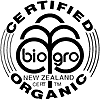3rd European Conference Bruxelles 19.–20. April 2007
GMO Free Regions
Biodiversity and Rural Development
GMO-free regions on
the increase in Europe
Bruxelles 19th April 2007
300 representatives of GMO-free regions across Europe have gathered in the European Parliament in
Brussels today for the 3rd International Conference on GMO-Free Regions, Biodiversity and Rural
Development. The conference celebrates the growth in the GMO-free movement, with the number of
GMO-free regions in Europe increasing from 174 to 236 over the past year and from around 3000 to
over 4200 municipalities and communities. "The GMO-free movement in Europe is going from
strength to strength. There are tens of thousands of farmers within the EU who have committed to
exclude GMOs on their land. We expect more regions and farmers to follow suit," said Gerald
Lonauer of the Network of GMO-free regional governments.
By standing up to the Commission, GMO-free regions have helped prevent an enforced spread in the
use of GMOs in EU agriculture. National bans on the insect-killing Mon810, the only GM-maize still
available and approved for commercial cultivation in the EU, have been supported by 2/3s of Member
States in Council. "We welcome the announcement today by Bulgaria to ban Mon810 and are
confident there will be more to come," said MEP Monica Frassoni, co-president of the Green Group,
who hosts the conference in the Parliament.
"Despite numerous environmental alarm bells, agricultural biodiversity in Europe is seriously under
threat, both from agricultural chemicals and the decline of seed pools, presided over by the seed
industry. Declining biodiversity, over-specialisation and the over -exploitation of natural resources
could destroy European agriculture if left unchecked," said Benedikt Haerlin of GENET and
Foundation on Future Farming, who co -organised the conference.
The seed industry has worked tirelessly to try and prevent free seed exchange, farm-saved seeds and
regional innovation and preservation to the detriment of European agriculture. Its efforts served in part
to prevent European legislation to protect and pr omote regional and traditional as well as so-called
'amateur' seed varieties. "Eight years after the Council and the Parliament have adopted measures to
support regional and farmers seed development, we expect the European Commission to finally
implement these measures to prevent further declines in agricultural biodiversity in Europe," said
Friedrich-Wilhelm Graefe zu Baringdorf , Vice President of the EP Agricultural Committee.
Contact in Brussels:
Benedikt Haerlin (GENET / FFF) +49 173 999 7 555 and Helmut Weixler (Greens) 0475 6713 40
More information: www.gmo-free-regions.org
Conference Secretariat
Foundation on Future Farming
Marienstr.19-20
D-10117 Berlin, Germany
phone +49 (0) 30 27590 309
fax +49 (0) 30 27590312
info@gmo-free-regions.org
















